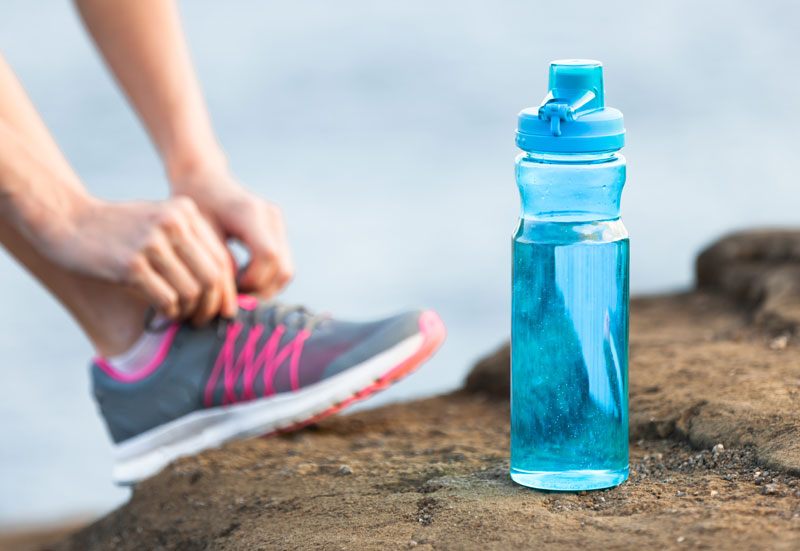True for any athlete but even more so for an athlete in the Southern Califronia Climate, proper hydration should play a crtitical role in their daily rountine. Athletes and coaches need to be aware of the very real dangers of dehydration.
Dehydration can diminish energy and impair performance. Even a 2% loss of body weight through sweat (i.e. 3 pounds for a 150 pound athlete) can put an athlete at a disadvantage. In warm weather or a hot gym, some athletes can lose more than a gallon of sweat during training or competition. For peak performance, athletes need to replace what they’ve lost in sweat. The replacement needs to include both fluid and electrolytes like sodium and potassium.
In some sports, competing at a certain weight is part of the game. Weigh-in deadlines and pressures aside, athletes should meet realistic weight goals by choosing balanced nutrition plans. Do not dehydrate to make weight! Doing so decreases performance and can lead to more serious and potentially life-threatening heat illnesses. Here are a few considerations for athletes who want to lose weight: Lose weight sensibly by aiming for no more than 1 to 2 pounds per week. Consume 3,500 fewer calories each week (or 500 calories a day) for a 1 pound weekly weight loss. Decrease calories gradually (i.e. 250 calories a day) to prevent cutting energy intake dramatically. Athletes should also increase their exercise (an extra 20 to 30 minutes daily) to burn an additional 250-300 calories per day.
Athletes in explosive sports rely on their bodies to perform in intense bursts: dehydration is often an overlooked problem. Athletes don’t realize dehydration can take a serious toll on the energy and metal focus that are key to success.
Here’s how to stay hydrated: Remember to consume fluids throughout the day. This may be as simple as as grabbing a sports drink first thing in the morning, then using fountains, and cafeteria beverages as triggers for drinking throughout the day. Hydrate 2 to 3 hours before practices and competitions. Athletes should aim for at least 16 ounces of fluid at this time and an additional 8 ounces 10 to 20 minutes prior to competition. Bring fluids to practice. Drink during workouts and competition. Sports drinks can help ward off dehydration and muscle cramps because they help replenish both fluids and electrolytes lost in sweat. Drink enough fluids to minimize weight loss due to sweat. Drink to replace sweat, don’t over drink. Endurance athletes, especially inexperienced marathoners who tend to run slowly and stop for more fluid breaks, risk over hydrating, which can lead to a dangerous condition called “hyponatremia”. Hyponatremia occurs when an athlete takes in too much fluid and the sodium level in blood drops too low.
All athletes should know how much fluid their body requires and use their sweat rate as a guide.
Submitted by Dr. Richard E. Uhler. Dr. Uhler is the team physician for the University of San Diego Toreros (USD), Murrieta Valley Nighthawks and the Southern California Elite Gymnastics Academy (SCEGA). His clinic is located at 27720 Jefferson Ave. Ste 100B, Temecula, CA. Phone (951) 693-9678 for more information.

